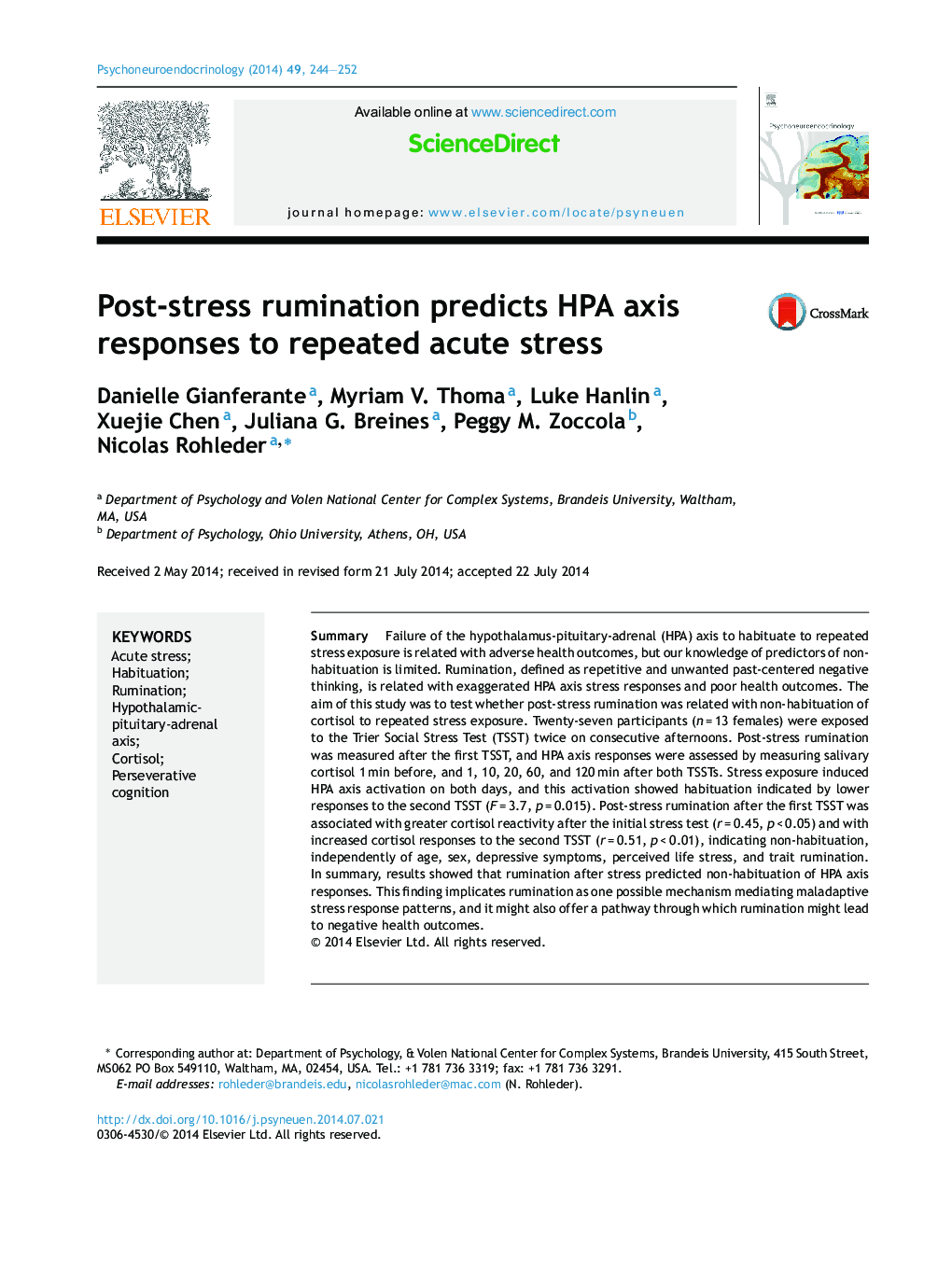| Article ID | Journal | Published Year | Pages | File Type |
|---|---|---|---|---|
| 6819570 | Psychoneuroendocrinology | 2014 | 9 Pages |
Abstract
Failure of the hypothalamus-pituitary-adrenal (HPA) axis to habituate to repeated stress exposure is related with adverse health outcomes, but our knowledge of predictors of non-habituation is limited. Rumination, defined as repetitive and unwanted past-centered negative thinking, is related with exaggerated HPA axis stress responses and poor health outcomes. The aim of this study was to test whether post-stress rumination was related with non-habituation of cortisol to repeated stress exposure. Twenty-seven participants (n = 13 females) were exposed to the Trier Social Stress Test (TSST) twice on consecutive afternoons. Post-stress rumination was measured after the first TSST, and HPA axis responses were assessed by measuring salivary cortisol 1 min before, and 1, 10, 20, 60, and 120 min after both TSSTs. Stress exposure induced HPA axis activation on both days, and this activation showed habituation indicated by lower responses to the second TSST (F = 3.7, p = 0.015). Post-stress rumination after the first TSST was associated with greater cortisol reactivity after the initial stress test (r = 0.45, p < 0.05) and with increased cortisol responses to the second TSST (r = 0.51, p < 0.01), indicating non-habituation, independently of age, sex, depressive symptoms, perceived life stress, and trait rumination. In summary, results showed that rumination after stress predicted non-habituation of HPA axis responses. This finding implicates rumination as one possible mechanism mediating maladaptive stress response patterns, and it might also offer a pathway through which rumination might lead to negative health outcomes.
Keywords
Related Topics
Life Sciences
Biochemistry, Genetics and Molecular Biology
Endocrinology
Authors
Danielle Gianferante, Myriam V. Thoma, Luke Hanlin, Xuejie Chen, Juliana G. Breines, Peggy M. Zoccola, Nicolas Rohleder,
